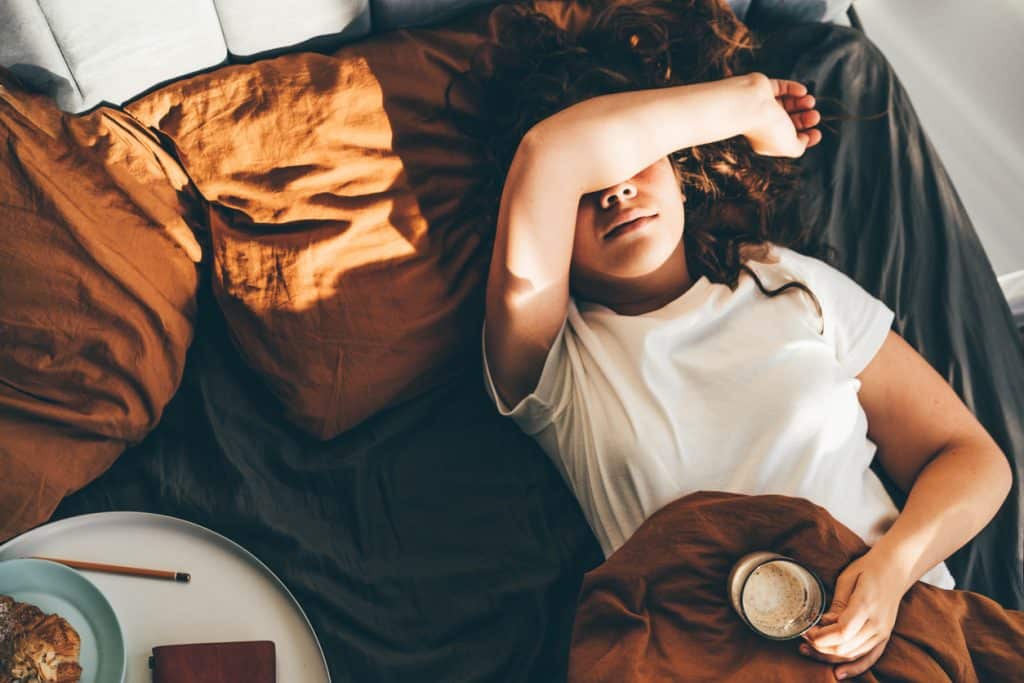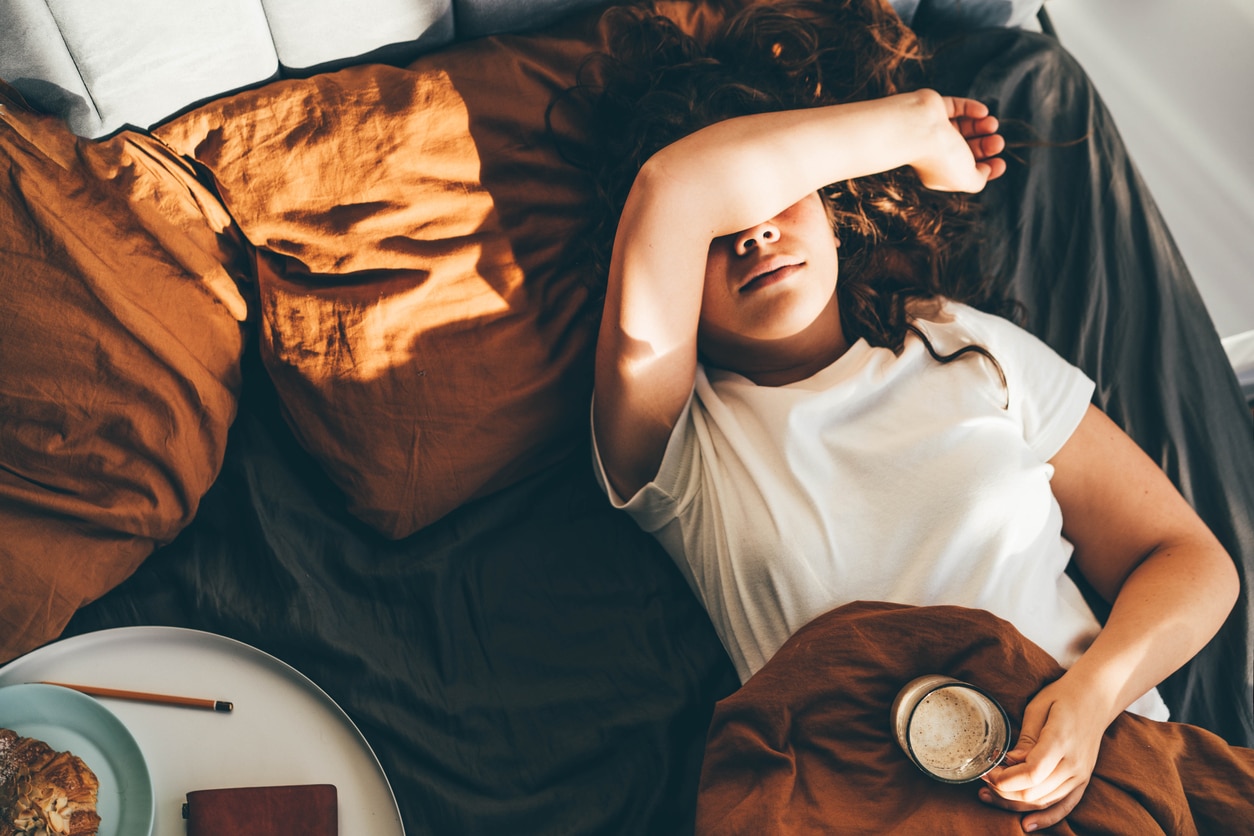A lie-in refers to sleeping late into the morning, usually on weekends or during holidays. Many people believe that a lie-in is the best way to make up for lost sleep and to rejuvenate oneself. However, research has shown that this may not be the case. In fact, you may feel more tired after a lie-in than you would if you had just gotten a normal night’s sleep!
There are a few reasons why you might feel more tired after a lie in. Firstly, it can disrupt your body’s natural daily cycle and throw off your circadian rhythm. Secondly, you are more likely to be in deep sleep when you do wake up. Finally, you will be lower on energy as you will have disrupted your body’s natural energy cycle.
Why does laying in bed feel so good?
The feeling of being well-rested after a long night’s sleep is one of the best feelings in the world. When you sleep, your body gets a chance to recover from the day’s activities. This means that your muscles can repair themselves, your brain can rest, and your internal organs can rejuvenate.
During deep sleep, your body also releases important hormones like human growth hormone and testosterone. These hormones are crucial for maintaining your health and vitality.
These hormones also play a part in feeling happy and can make you feel more relaxed and contented when you are lying in your warm bed in the morning!

Is a lie in good for you?
A lie in is not actually very good for you and more sleep does not necessarily mean less fatigue the next morning.
If you have had a long week and you are craving rest then you should consider having a 20 minute power nap rather than being tempted to get extra sleep in the morning.
Our body cycles naturally regulate fatigue and energy, so it’s important to keep these cycles consistent. That means going to bed and waking up at the same time every day, with 7-8 hours sleep every night.
Why do you feel more tired after a lie in?
As it turns out, there’s a scientific explanation for this phenomenon.
Circadian Rhythm
Your body has an internal clock that regulates your natural sleep-wake cycle, also known as your circadian rhythm. This sleep cycle is controlled by a part of your brain called the circadian pacemaker. The circadian pacemaker helps to regulate the release of certain hormones, including melatonin, which makes you feel sleepy.
Circadian Pacemaker
The circadian pacemaker is sensitive to light and darkness. When it’s dark outside, the circadian pacemaker signals your body to release melatonin, making you feel sleepy. Conversely, when it’s light outside, the circadian pacemaker signals your body to stop releasing melatonin, making you feel awake and alert.
So what does this have to do with why you feel more tired after a lie-in? Well, when you slept in late, you threw off your body’s natural circadian rhythm. This can make it harder for you to wake up and can leave you feeling groggy and exhausted throughout the day.
More likely to be in deep sleep
When you sleep in on weekends or during holidays, you are more likely to be in deep sleep when your alarm goes off. Deep sleep is the heaviest stage of sleep and it is more difficult to wake up from deep sleep than from lighter stages of sleep. As a result, you may feel groggy and disoriented when you try to wake up from deep sleep, leading to that “tired” feeling.
When you sleep, your body goes through two main types of sleep: REM (rapid eye movement) and NREM (non-REM). NREM sleep is further divided into three stages: N1, N2, and N3.
N1 is the lightest stage of sleep, while N3 is the deepest. During N3 sleep, your breathing and heart rate are at their slowest and your brainwaves are at their lowest frequency. This stage of sleep is also known as deep sleep or slow-wave sleep. It’s during deep sleep that your body does most of its repair work, such as growing muscles and tissue, repairing cells, and boosting immunity.
Now here’s where things get interesting. Studies have shown that people who wake up from deep sleep feel more tired than those who wake up from lighter stages of sleep. One theory is that it takes more effort to wake up from deep sleep because your body is in “repair mode” and doesn’t want to be interrupted. This means that if you wake up from the wrong sleep zone, because you have stayed in bed too long, you can feel worse than if you had woken at the eight hour mark.
Does waking up and going back to sleep make you more tired?
Yes, waking up and going back to sleep can make you feel more tired than if you had just got up in the first place.
Your body’s natural biological clock helps to regulate your energy cycle. If you regularly get up at the same time every day, your brain starts to prepare your body for waking at that time. This involves releasing hormones and increasing your body temperature so that you will naturally feel awake when you do wake up.
If you then decide to get some extra sleep and sleep longer you disrupt your body’s daily cycle and go back into the different sleep stages rather than feel naturally awake. This can play havoc with your energy levels and even leave you feeling like you have jet lag. Going back to sleep after you wake up is a terrible solution to feeling tired and in fact you are better off just getting up and making sure to go to bed on time that evening.
Does staying in bed too long make you more tired?
Too much sleep can actually leave make you feel tired in the same way that too little sleep can.
Disrupted sleep schedule
Research has shown that any major change in your sleep schedule will actually lead to increased fatigue throughout the day, regardless of whether the change is too much, or too little sleep.
This is why it’s important to maintain your weekday sleep schedule, even at weekends. If you go to work early morning in the week, then you should still get out of bed early at the weekend to keep your body clock in check. Even if you are naturally a night owl, keeping to the same circadian clock is actually really important to avoid oversleeping on other days and ending up feeling ‘sleep drunkenness the day after!
Sleep Inertia
Another reason why you may feel more tired after a lie-in is because of something called sleep inertia. Sleep inertia is the groggy feeling you experience when you first wake up. It is caused by a temporary decrease in cognitive function and motor skills.
Sleep inertia is most pronounced when you wake up from deep sleep. This is because your body is in “repair mode” and doesn’t want to be interrupted. It takes time for your body to adjust and for your cognitive function and motor skills to return to normal. In the meantime, you may feel disoriented, confused, and sluggish.
Dehydration
Dehydration can also contribute to that tired feeling. When you sleep, your body loses water through respiration and sweating. Staying in bed for longer may mean that you become more dehydrated, as you go longer without rehydrating. This can make you feel more tired than if you had got up and had a drink.
How many hours of sleep do you need?
Most people need between 7 and 8 hours of sleep per night. However, there is some variation from person to person. Some people may need as little as 6 hours of sleep while others may need up to 9 hours. The best way to find out how much sleep you need is to experiment and see how you feel after different amounts of sleep.
If you find that you’re consistently feeling tired during the day, even after getting a full good night’s sleep, it may be time to see a doctor. You could be suffering from a sleeping disorder or other underlying health condition.
You may also be interested in: Why do I get sleepy on FaceTime?
Conclusion: Why do I feel more tired after a lie in?
There are a few reasons why you might feel more tired after a lie in. Firstly, it can disrupt your body’s natural daily cycle and throw off your circadian rhythm. Secondly, you are more likely to be in deep sleep when you do wake up. Finally, you will be lower on energy as you will have disrupted your body’s natural energy cycle.
